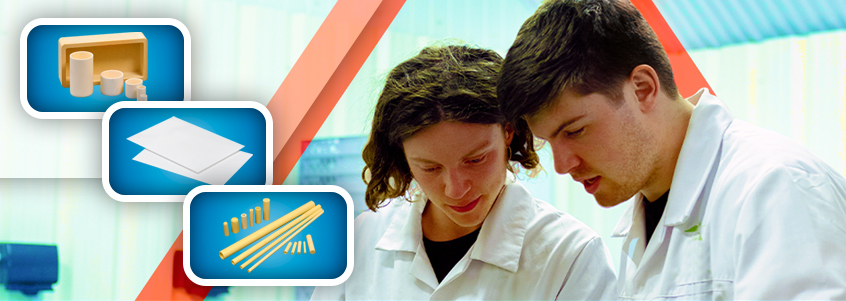Despite being known as a relatively old-fashioned material, ceramics are commonly used in ‘high-tech’ experiments performed by laboratories, manufacturers and universities, facilitating the invention and construction of tomorrow’s technologies. How are they used and what makes them so useful to researchers? That’s what we’re here to look at.
The most common ceramics used in laboratories are technical ceramics. The term “technical ceramic” is used to describe a range of ceramic materials which have been designed to have a combination of specialist properties otherwise unavailable from metals or plastics. These properties will usually be a mixture of extreme hardness, high strength and chemical/thermal stability, all of which are retained even under the most extreme conditions.
How are such desirable properties achieved? As a group, technical ceramics share several features that create amazing performance:
- They have strong and stable covalent bonds
- They’re fully dense (with close to zero porosity)
- They’re carefully processed to greatly limit any flaws
Technical ceramics are often used to support items that are being heat treated or thermally processed in some way. Many laboratory tests also involve the use of high temperatures and require a tube, tray or crucible to hold the sample under test. Alumina is a very versatile technical ceramic with a good balance of properties, and the 99% grade is commonly used for these types of high-temperature application.
Where processes and tests involve abrasion or corrosive chemicals, the extreme hardness and chemical stability of technical ceramics is unmatched, and 95% alumina is often a cost-effective choice.
There is no such thing as ‘the best’ technical ceramic – the material must be carefully chosen to best match the requirements of the application. Our range of technical ceramics include:
Alumina |
Aluminium Nitride |
Machinable Cordierite |
Silicon Nitride |
Steatite |
Zirconia |
They can be used to make a range of scientific accessories, including:
Used as supports during testing or processing, and as substrates for electronic devices. |
An alternate type of tile. Alumina discs can be supplied either ‘as fired’, surface ground or polished. |
Thermally stable, high quality ceramic tubes, available with open and closed ends. Available in our Online Store |
Used to hold samples during tests. Suitable for use in high temperatures; can be highly customised to meet any criteria. |
Used in a wide variety of industrial processes and tests. Sizes up to 20cm long and 2cm deep are typical. |
A compact and highly versatile modular system used to hold multiple small components during treatment. |
For more information on technical ceramics, the research products that are available, and how they can help your work, please feel free to contact us. We’re always happy to help.
